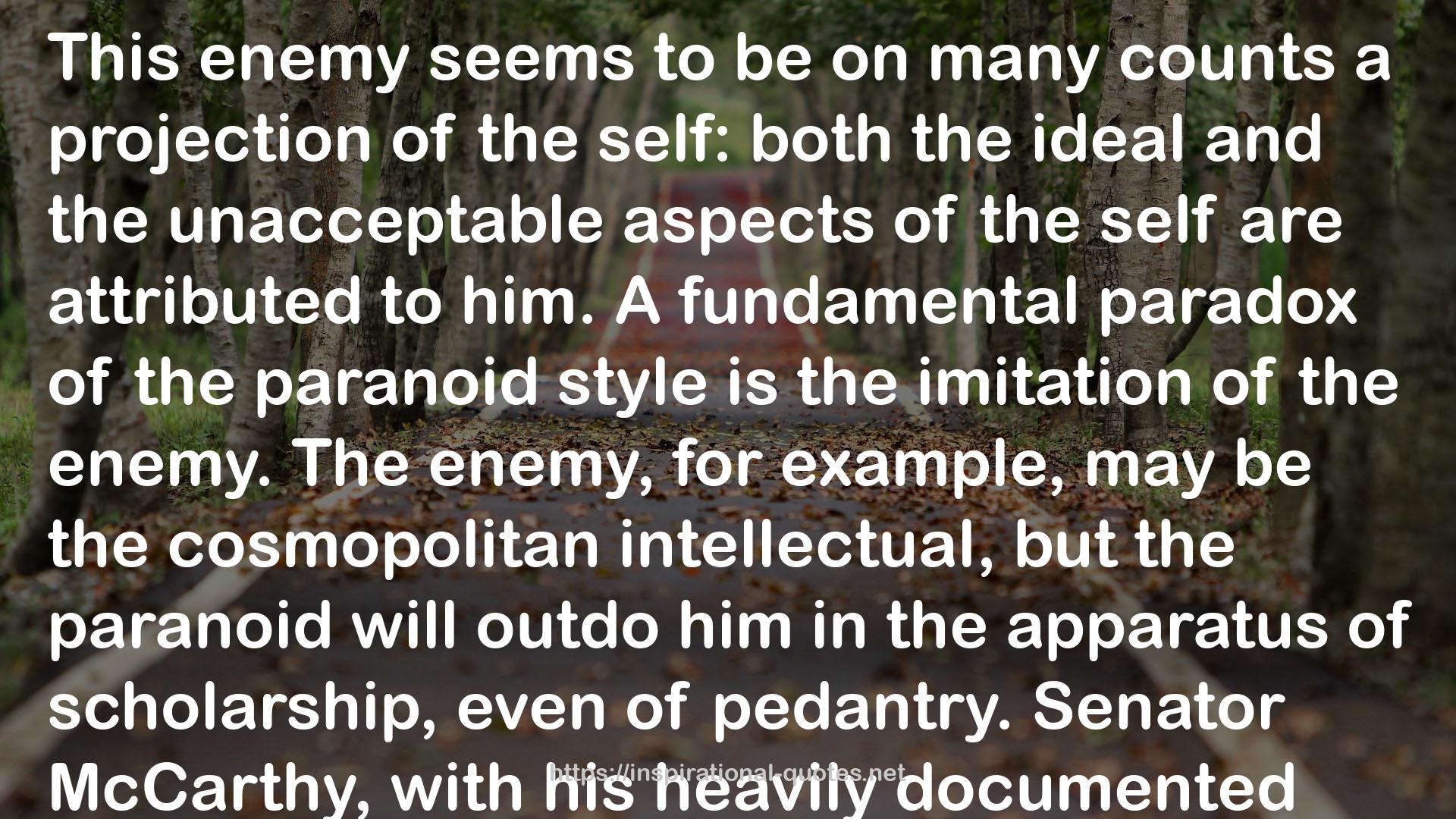" This enemy seems to be on many counts a projection of the self: both the ideal and the unacceptable aspects of the self are attributed to him. A fundamental paradox of the paranoid style is the imitation of the enemy. The enemy, for example, may be the cosmopolitan intellectual, but the paranoid will outdo him in the apparatus of scholarship, even of pedantry. Senator McCarthy, with his heavily documented tracts and his show of information, Mr. Welch with his accumulations of irresistible evidence, John Robison with his laborious study of documents in a language he but poorly used, the anti-Masons with their endlessly painstaking discussions of Masonic ritual—all these offer a kind of implicit compliment to their opponents. Secret organizations set up to combat secret organizations give the same flattery. The Ku Klux Klan imitated Catholicism to the point of donning priestly vestments, developing an elaborate ritual and an equally elaborate hierarchy. The John Birch Society emulates Communist cells and quasi-secret operation through “front” groups, and preaches a ruthless prosecution of the ideological war along lines very similar to those it finds in the Communist enemy. Spokesmen of the various Christian anti-Communist “crusades” openly express their admiration for the dedication, discipline, and strategic ingenuity the Communist cause calls forth. "
― Richard Hofstadter , The Paranoid Style in American Politics and Other Essays
